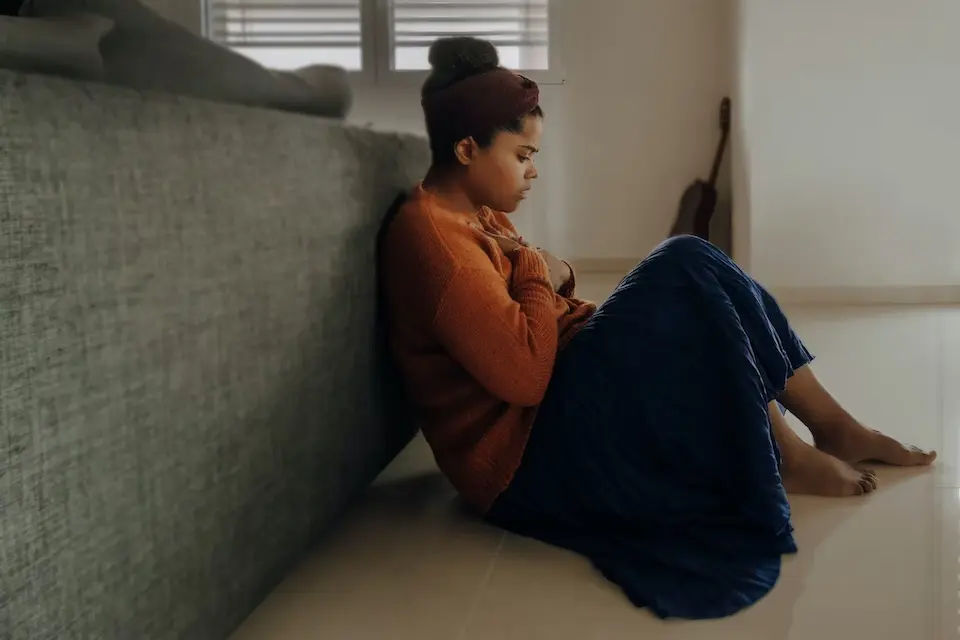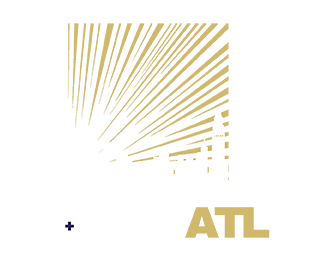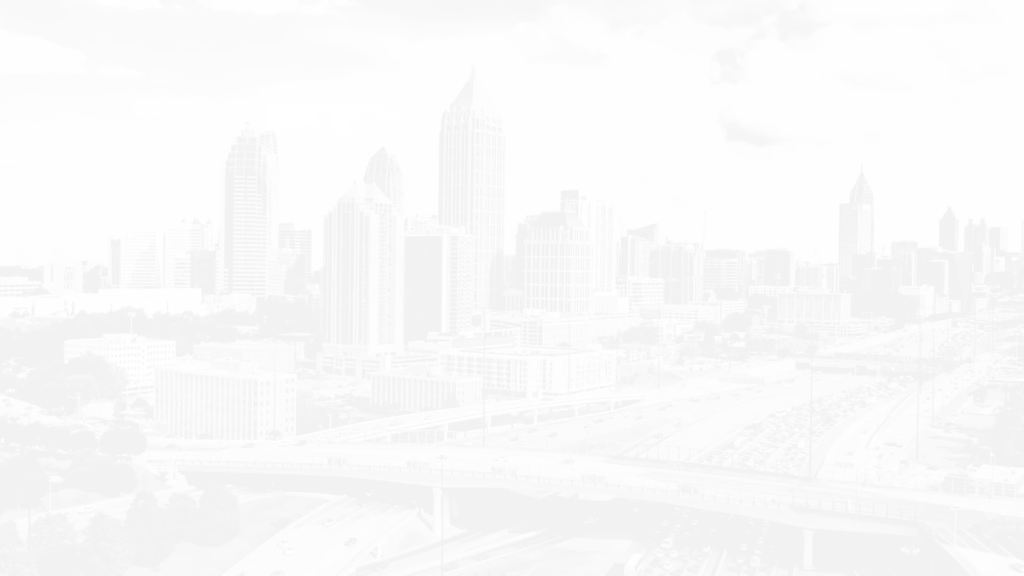Car accidents are prevalent in the U.S. – it records the most road crash deaths,…

Have you been in a car accident and feel like you’re experiencing PTSD? If so, you’re not alone. In fact, approximately 9% of all serious car accident survivors will develop PTSD, and a significantly higher percentage will deal with psychological injuries. Those who don’t experience PTSD may still have to deal with increased anxiety as a result of their trauma.
It’s important to ask yourself how you’re really feeling in the aftermath of an automobile accident. Most people tend to overlook their anxiety or PTSD, but the truth is that if your accident was “deeply distressing or disturbing,” you’ll probably need to seek out help. One form of help that should never be downplayed can come from an attorney.
Nathan Fitzpatrick serves the Atlanta, Georgia, area as a highly experienced accident lawyer. He’s here to discuss PTSD, and what your legal rights are if you're experiencing anxiety after a car accident.
Understanding Anxiety and Post Traumatic Stress Disorder (PTSD)
Victims don't only experience physical injuries following a car accident. And regardless of the severity of the collision, those involved in the wreck can experience post-traumatic stress disorder (PTSD) and anxiety. These two mood disorders have long been misunderstood and are only now becoming more widely recognized as possible side effects of a traffic accident. However, this doesn’t mean that people haven’t experienced them since the very first accident.
In general, a bit of anxiety can help you cope with a difficult situation. But we’re not talking about having a little bit of anxiety. Instead, getting into an auto accident can bring out a more severe type of anxiety that not only won’t go away but will also get worse over time.
Post-traumatic stress disorder, or PTSD, is a condition in which you have uncontrollable feelings regarding an accident that lasts for months or even years. It can also have a major impact on your ability to maintain normal day-to-day functioning.
Emotional Distress After a Car Accident
Regardless of whether anyone talks about it, it’s quite common for victims of a car accident to experience depression and anxiety. According to the American Psychological Association, being involved in a car accident is the number one most common cause of PTSD among the general population.
If you’ve been involved in an automobile crash and are having difficulty focusing, intrusive memories, mood and thought changes, etc., it’s vitally important that you get help right away. Speaking to a therapist is the right call, as is discussing the impact with an experienced car accident attorney.
Symptoms of Anxiety or Emotional Distress
Emotional distress is a blanket term to encompass any type of emotional suffering. It has a wide range of symptoms, including:
- Excessive worrying.
- Feeling guilt without a clear cause.
- Feeling hopeless, helpless, or overwhelmed.
- Difficulty with memory.
- Difficulty thinking.
- Appetite changes.
- Sleeping too little or too much.
- Relying on a mood-altering substance such as alcohol.
Anxiety carries potential life-changing effects, even though many car accident victims don't often realize the toll it takes on their emotional and mental health. Anxiety may be part of your emotional distress, but it may also be separate. The most common symptoms associated with anxiety are:
- Feeling uneasy.
- Feeling dread.
- Feeling fear.
- Anxious beliefs or thoughts that are hard to control.
- Rapid heartbeat.
- Dizziness.
- Shortness of breath.
- Avoiding activities that you enjoy.
Finally, if your anxiety and/or emotional distress was triggered specifically by the car accident, you may also face:
- Nightmares or upsetting dreams about the event.
- Reliving the trauma (flashbacks).
- Having a severe physical or emotional reaction to reminders of the event.
- Unwanted and recurrent memories of the event.
- Trying to avoid discussions or people/places that remind you of the event.
- Negative thoughts about the world or yourself.
- Difficulty maintaining family and friendships.
- Feeling emotionally numb.
The Medical Cost of Treating Psychiatric Ailments
The cost of receiving mental health care for psychiatric treatment is alarmingly high. Even if you’ve got good insurance, it may cost you more than $2,500 a year, and that’s only with 12 visits. Unfortunately, 2 out of 5 Americans simply can’t afford this extra expense, no matter how badly they might need it. Therefore, if you’ve been in a car accident that has harmed your mental well-being, it’s imperative to include this in your lawsuit.
Physical Injuries and Their Impact on Mental Wellness
Although everyone may not recognize it, there is a significant bridge between suffering from a physical injury and having mental health issues. For instance, if you have a chronic illness or a serious injury, you’re much more likely to develop anxiety, depression, and/or PTSD. It’s estimated that one out of every three people who suffer from a traumatic injury will be dealing with major depression three months later. Those who have developed PTSD have a lower quality of general well-being six months after the accident.
Factors Contributing to Anxiety After a Car Accident
There is a wide range of factors that can contribute to whether or not you develop anxiety after a car accident. Let’s take a closer look at three of them.
The Severity of the Accident
Per the Anxiety and Depression Association of America, individuals develop anxiety after car accidents due to a physical response. Because of that, it's possible to end up with anxiety even after a relatively benign car accident. That said, it’s most common if your accident is severe. People who have been involved in a rollover accident, for example, are much more prone to reliving the traumatic event again and again than those who were rear-ended at a low speed.
Personal History and Previous Mental Trauma
Imagine that two people are in serious car accidents. One person has no previous trauma, and the other has significant previous trauma. Both people are at risk of developing PTSD from the accident, but the person who has dealt with trauma before is at a higher risk. That’s because the old saying, ‘what doesn’t kill you makes you stronger,’ couldn’t possibly be more wrong. Instead, various instances of trauma will build onto each other, putting you in a very precarious position.
Family and Social Support
Across the board, having a network of family and friends to support you can make a notable difference in your recovery time after a car accident. It is also extremely helpful to have a supportive employer, too. People without these resources typically report a higher level of pain and may suffer from worse mental trauma. Even with a support network, though, you’ll still have to deal with whatever physical and emotional distress is present, which is difficult for many people.
Managing Anxiety and PTSD Symptoms
Choosing to manage your emotional distress after a car accident, rather than letting its symptoms overcome your life, is always best. Some people may be unable to do so at first, though, so it’s critical that everyone around them learns how to manage it, too. A few tips that can be quite helpful are:
- Join a support group.
- Learn about PTSD and trauma.
- Do outdoor activities.
- Practice relaxation techniques.
- Hang out with positive people.
- Talk to a mental health professional.
- Spend time enjoying the peace of nature.
- Avoid taking alcohol or drugs.
Coping Strategies for Recovery
There is a difference between managing your symptoms and using a coping strategy to help yourself recover after a car accident. The items listed above can help you feel better about your situation, but they won’t take you all the way to recovery. Fortunately, there are many proven coping strategies, including:
- Deep breathing.
- Mindfulness.
- Progressive muscle relaxation.
- Social support.
- Self-monitoring.
- Expressive writing.
- Self-soothing.
- Behavioral activation.
- Distraction.
You can combine these strategies, too. For instance, you might listen to relaxing music (self-soothing) while you do some coloring in an adult coloring book (distraction). Both of these techniques will give your brain a temporary break from your PTSD and anxiety, which will make it easier to deal with everything.
Navigating the Legal Process After a Car Accident
There are at least nine different steps you need to take in the aftermath of a car accident. Each step is critically important, so make sure you follow all of them.
- Seek Medical Attention – Even if you feel alright after the car accident, it’s always best to get checked out by your doctor.
- File a Police Report a – This is going to make a big difference if you decide to file a lawsuit.
- Contact Your Insurance Agent – Always be certain that your insurance agent knows immediately.
- Gather Any Evidence – Take photos of the car accident scene. Pull your accident-related bills together. Keep a journal of your emotional and physical symptoms. Keep any documentation that pertains to lost wages.
- Hire an Attorney – If you were in a serious accident, you may need to file a personal injury claim. If so you will want an xperienced car accident attorney by your side.
- Prepare to Negotiate – Negotiating with the insurance company is the name of the game. They won’t want to pay you as much as they should, so stick with it until you receive a fair settlement.
- File a Lawsuit – If negotiations break down, move forward with a lawsuit.
- Go to Each Court Hearing – Reaching this point isn’t extremely common, but if your trial goes to court, be sure to show up at each court hearing.
- Wait for Judgment – Once the trial ends, the judge or jury will make a decision. Be prepared for anything and discuss in advance if you want to file an appeal if you lose.
Seeking Compensation for Physical and Emotional Injuries
To seek damages for your emotional injuries after a car accident, Georgia law states that you must also have physical injuries. To do so, the following benchmarks must be cleared:
- Did you receive a physical impact that was the other person’s fault?
- Did this impact cause a bodily injury?
- Did your bodily injury cause your emotional distress?
Either way, you’ll be in a good position to sue for economic damages, including:
- Medical expenses.
- Loss of income and benefits.
- Out-of-pocket expenses.
- Diminished earning potential.
- Medical equipment.
- Medications.
- Cost of occupational, physical, or other therapy.
- Long-term care costs.
Additionally, if you clear the three hurdles listed above, the court may grant you non-economic damages (pain and suffering). There is a formula that Georgia judges use to determine how much your pain and suffering are worth. Put simply, they’ll take your economic damages and multiply them by anywhere from 1.5 to 5 times. The amount you receive in your case will be determined by the specific facts that impact your case.
Legal Resources
Numerous legal organizations can offer support and help you understand your rights after a car accident. Here are a few you can reach out to:
- The State Bar of Georgia – This is the official website of the Georgia Bar, and it has a wealth of information on car accidents. They also have a Lawyer Referral Service that allows people to find qualified attorneys in their area who can assist with their legal needs
- Georgia Court System – Here, you’ll find access to court records, forms, and other resources.
- The Fitzpatrick Firm, LLC – This firm specializes in car accident cases and has experience handling traumatic brain injuries, whiplash, and more.
- Georgia Association for Women Lawyers – This organization provides support to female lawyers in the state of Georgia. Additionally, they provide access to resources and legal assistance to those who need it most.
- Georgia Legal Services Program – This program provides free legal assistance to low-income Georgians. They can provide information about the laws that pertain to car accidents and assist with filing a lawsuit if necessary.
Advocacy Resources
These organizations are dedicated to helping those who have been involved in car accidents receive justice and fair compensation.
- Southern Center for Human Rights – This nonprofit works to ensure fair treatment of those involved in criminal cases, but they also advocate for civil justice issues. They are an excellent resource for those looking to ensure justice is served in Georgia car accident cases.
- Georgia Watch – They promote fairness, justice, and economic well-being for all Georgians. Georgia Watch can help you have access to the resources and assistance you need to recover after a car accident.
- The National Center for Victims of Crime – This organization provides helpful information about insurance claims, state laws, medical bills, and more. They also provide access to legal resources and referral services for attorneys who specialize in car accident cases.
Resources for Emotional Distress
If you have experienced mental trauma, you can use the following resources to seek help:
- Georgia Emotional Distress Resources – Their website page can be used to get support and assistance for people experiencing emotional distress due to a car accident.
- Mental Health America of Georgia – This organization provides resources and support for mental wellness. They can provide access to therapy, counseling, and support groups.
- National Alliance on Mental Illness (NAMI) – NAMI is a national organization providing education, advocacy, support, and outreach for individuals with mental illness. They also offer resources and support for those affected by car accidents.
Road to Recovery: Life After a Car Accident
The amount of time it takes you to recover will vary depending on what type of injuries you sustained. Recovering from your physical injuries, as long as they’re not disabling, usually takes anywhere from a couple of weeks to a few months. The emotional distress, meanwhile, typically resolves itself within a month, but there are definitely exceptions. For example, if you’ve suffered from complex post-traumatic stress disorder, it could take years for you to feel completely safe again.
The good news is that there are ways you can help yourself recover from PTSD-related emotional distress more quickly, such as:
- Going to therapy.
- Exercising regularly.
- Sticking to a self-care routine.
- Rebuilding your confidence by driving again.
- Keeping your social support network close by.
If You Are Experiencing Anxiety After a Car Accident, Contact The Fitzpatrick Firm For A Complementary Case Review
If you are a victim of a car accident that has caused you anxiety or any other form of emotional distress, The Fitzpatrick Firm will advocate for you. They’ll also help you every step of the way. Turn to them for a free legal consultation. If the facts of your case show that you deserve compensation, we can get started right away! We’ll work on your behalf to help you deal with everything, including:
- Filing a police report.
- Taking pictures of the accident scene.
- Gathering evidence.
- Contacting witnesses.
- Preparing and filing legal documents.
- Hiring experts (if needed).
- Negotiating with the insurance company.
- Obtaining a settlement or taking your case to court.
Anxiety After a Car Accident Frequently Asked Questions
After car accidents happen, many victims experience emotional trauma, such as anxiety. If you are experiencing emotional trauma after a car accident, you may have questions about your situation. Below, we answer some of the most common questions about emotional distress following an auto accident:
How long does anxiety last after a car accident?
This may not be what you want to hear, but the answer is that there is no preset time frame for getting past your anxiety. Most people will begin to feel better within a few days or weeks, but the rest may take several months or even years to fully reclaim their lives from the grip of car accident-caused anxiety.
Can I sue for emotional trauma after a car accident?
Certainly! It may take a while for your mental health to improve, and you may need help. Therefore, it is essential to your recovery to recoup damages for any psychological suffering following a car accident. As long as you can prove that the other person's negligence was the cause of your emotional distress, you may be able to receive compensation for it. You'll need to consult an experienced attorney who will review the details of your case and determine whether or not you have a valid claim.
What types of damages can I get for emotional trauma?
Traumatized car accident victims may be able to receive both economic and non-economic damages. You may need to rely on an anxiety treatment plan, along with anti-anxiety medication and more. Economic damages will cover expenses such as medical bills, lost wages, and out-of-pocket expenses related to your accident. Non-economic damages, meanwhile, generally consist of pain and suffering, emotional distress, loss of enjoyment of life, and in some cases, even punitive damages. The amount you receive will largely depend on how severe your distress is, as well as the strength of your case.
What can I do to reduce my emotional distress after a car accident?
Car accidents can cause severe emotional anguish. The best thing you can do for this psychological distress is take care of yourself. Ensure you get enough rest, eat healthy meals, exercise regularly, spend time with supportive friends and family members, and engage in activities that bring you joy. You should also consider talking to a counselor or other professional if the symptoms are too much for you to handle on your own. Additionally, consulting a lawyer who can help you navigate the legal side of things can be a huge help in your recovery.
No matter how you look at it, a car crash is a traumatic event. If you’re experiencing mental anguish after you’ve been in an automobile accident, contact the Fitzpatrick Firm! We’ll provide you with a complimentary case review, and there is absolutely no obligation. We’re available to take your call 24/7 at (678) 607-5550 or fill out our form below.


